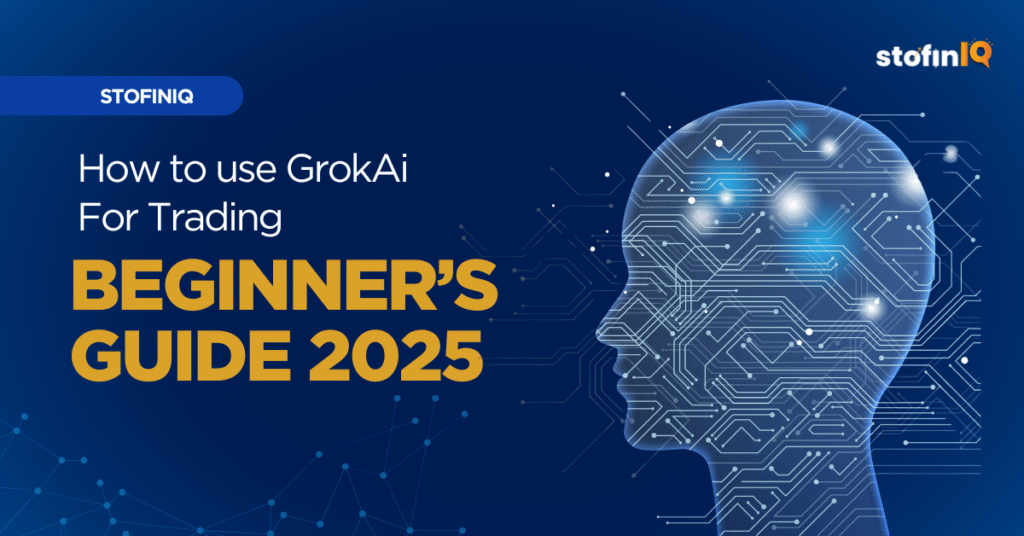
Financial services use AI to automate their processes and improve how they operate. Thanks to AI in Finance, institutions in finance automate workflows, make better choices and offer a better customer experience. Because of these tools, financial companies can deal with large sets of data efficiently, discovering knowledge that helps guide their strategies.
Its capability to adjust and improve gives financial experts a useful advantage. By using technology, companies understand trends that can alter how the market works, and they can respond better than their competitors. Because of AI’s constant growth, financial services will likely become more accessible and suited to the personal needs of people.
Key Takeaways
- AI is greatly changing the way financial services are provided.
- Machine learning is essential in finding fraud, making decisions on credit scores and trading with algorithms.
- Using AI means firms can better identify problems and make decisions before problems occur.
- Customer experience gets better with help from chatbots and customized bank services.
- The society has to be concerned about ethics, needs and increased transparency, while also finding more knowledgeable people for AI work.
Machine Learning in Finance
Machine learning is one of the parts of AI itself in loose terms. It is a process that involves training the algorithm to identify certain patterns and make decisions based on that data. In finance, machine learning can be used in a lot of applications. These include:
- Fraud Detection: Machine learning models can analyse certain transitions in real-time patterns; this can be very helpful in identifying fraudulent activities.
- Credit Scoring: When large collections of data are analysed, machines can more accurately assess creditworthiness. As a result, people who might not have been considered in the past are now offered the chance to get credit.
- Algorithmic Trading: Algo trading is one of the most beneficial features of AI in finance, trading Machine learning uses a lot of data from the market to choose trades more quickly than traders can. As soon as new information is received, these algorithms adjust the trading strategy to help make the most profit.
These applications show the potential machine learning holds and its capability to change financial services. As this technology becomes more advanced, it will be capable of innovation across the financial industry. Thus, new AI tools and solutions for both institutions and consumers will be unlocked.
AI Risk Management
Managing risks is very important in the financial field, and AI is helping to make it better. These systems use AI to sort through data to show any existing risks and how to tackle them. AI enables financial institutions to expect changes in the market and act quickly to reduce their risks.
AI systems have a better ability than humans to spot unusual events and anything that stands out. For this reason, financial companies are equipped to deal with risks more effectively if anything unexpected happens. Since financial situations are getting more complicated, AI will become an even more significant tool in risk management.
Predictive Analytics
AI lets financial institutions identify upcoming dangers and respond proactively. With historical information and today’s trends, AI models help predict what will happen in the market, recognise new dangers and advise on loss prevention. Such planning is very important for organisations that want to succeed in a changing market.
It assists with risk management as well as improves the strategy and choices companies make. The insights help them adjust their investment practices, allocate their funds in the best way and use industry trends in making decisions. More advanced predictive analytics tools will lead to financial organisations gaining even higher value.
Real-time Monitoring
AI lets customers watch their finances in real-time, giving instant notices if anything suspicious is found. To stop financial issues and maintain steady market conditions, authorities should keep up such detailed inspections. By monitoring in real-time, financial firms can respond fast to any unusual activities and protect what matters to them and their clients.
Staying truthful to industry standards becomes possible for institutions because AI-powered monitors are always checking their actions. Thanks to them, mistakes from people are less likely, and the reliability of financial services increases. As they get better, these systems will have a key part in shielding the financial environment.
Compliance and Regulation
Thanks to AI in Finance can make certain that they are following legal regulations. Automated systems follow new laws and make certain every operation meets the rules, reducing the danger of getting into legal trouble. Using AI, financial institutions can concentrate on progress and fresh opportunities instead of wasting time handling paperwork.
Besides, AI can compile in-depth reports, which makes the regulatory process clearer and more accountable. Being able to do this cuts down possible fines and sanctions while also increasing trust among stakeholders. Because regulations keep changing, AI in Finance will support financial institutions by helping them adjust properly.
Broader Implications of AI in Finance

The integration of AI in finance extends beyond machine learning and risk management. It will transform several features of the industry, such as how customers are served and how investments are managed. The use of AI by financial institutions helps them provide personalised services and increases how efficient they are.
AI is important in the financial sector, helping financial groups stay flexible and creative in the era of digital change. The use of AI in finance will lead to big changes, replacing old business models and helping to provide new opportunities.
Enhanced Customer Experience
Customer service in the financial sector is being modernised by chatbots and virtual assistants powered by AI. Because of these tools, customers can get support at any time, have their questions answered and get personalised advice, which improves how happy and involved they feel with the company. Automating simple jobs saves agents’ time, which lets them help customers with more complex questions and improve service delivery.
Apart from making service faster, AI-powered customer talk is specially designed to fit each person’s unique requirements. ExpressCash analyses customer data using AI in Finance so it can tailor its services and make banking more personal for clients. Being able to tailor financial services in this way builds customer loyalty and allows financial organisations to stand out from competitors.
Personalised Banking
AI has the capability to analyse customer data and provide services that match the needs of the customer. AI understands customer behaviour and hence personalises their preferences. The services provided by AI are both relevant and timely.
Personalised banking with the power of AI in Finance enables financial institutions to have a stronger relationship with their customers. Since specific customers have specific needs, the solutions are highly proactive, and hence they build satisfaction and loyalty.
Investment Strategies
AI in finance is transforming investment strategies by providing data-driven insights and recommendations. Analysing trends, understanding market risks and making smart decisions is easier with AI, so portfolio managers enjoy better outcomes. Because of AI, investment firms can measure and improve their strategies to stay in line with what is happening in the market and what customers look for.
With AI in investment strategies, companies enjoy a better chance of reacting fast to any market changes and profiting from new possibilities. Having these capabilities boosts the portfolio’s performance and increases how well we serve our clients. AI in Finance is continuing to change the world of investing.
Challenges and Considerations
While AI offers numerous benefits, its integration into financial services comes with challenges. Financial institutions must consider the ethical and privacy implications of using AI in Finance, as well as the need for transparency and accountability in AI-driven decision-making. Addressing these challenges is crucial to ensuring the responsible and sustainable adoption of AI technologies.
The complexity of AI in finance systems and their reliance on vast amounts of data can pose significant risks if not managed properly. Financial institutions must implement robust governance frameworks to oversee AI operations, ensuring that they align with ethical standards and regulatory requirements. By addressing these considerations, institutions can harness the full potential of AI while minimising risks.
Ethical and Privacy Concerns
Because AI in Finance tools handles confidential financial information, issues about privacy and security come up. Firms in the finance sector have to adopt strong security practices plus follow data protection rules so they secure their clients’ data. It is not only the law but also very important for a company to preserve data privacy to keep customers confident in them.
As well as technical approaches, institutions are expected to ensure their AI is created and used fairly and with accountability. Financial institutions improve their chances of success and gain their customers’ trust by focusing on ethics. Because AI is getting more important, these issues will remain a focus for everyone involved.
Transparency of AI in Finance
It is not always easy to see how AI in Finance algorithms arrive at their decisions. It is important for financial institutions to make their AI processes easy to understand so customers trust them. Making AI systems easier to understand helps institutions gain the trust of stakeholders.
Showing transparency helps institutions to prove their AI results are fair and correct for compliance. When financial firms choose transparent AI methods, people will believe their systems to be neutral and dependable. As things progress further in AI in Finance, being open about processes will be a main point for the industry.
The Need for Skilled Professionals
The rise of AI in finance demands a workforce skilled in AI technologies. Businesses in the financial sector must prepare their staff and hire those able to create, apply and look after advanced AI systems. A team of people with the right abilities is necessary for AI to make the most impact in financial services.
As well as being skilled in the technical field, financial professionals should understand the impact AI has on running and guiding a business. Having staff knowledgeable and ready to change allows financial institutions to handle the issues and use the capabilities AI offers. As AI becomes more important in finance, helping employees grow will be necessary for achieving good results.
The Future Landscape of AI in Financial Services

AI’s potential in finance is bright, as there are many improvements and upgrades coming in the future. Improvements in AI in Finance will provide financial institutions with new methods to perform tasks better, cut down expenses and improve customer experiences. AI will influence profound changes, reformat the financial world and establish new ways of offering services.
Affecting the financial sector, AI is predicted to provide a significant increase in growth and a wide range of innovations. Organisations using AI in finance will keep up with market changes, remain ahead of their competitors and guarantee lasting success. AI will keep playing a key role in driving improvements in the financial sector as time goes on.
Increased Automation
Because of AI in Finance, there will be more automation in financial services, making things go more smoothly. Routine jobs such as handling data, processing papers and creating reports will be taken over by technology, giving team members time to work on bigger projects. As a result, money management firms will reduce costs and increase their productivity.
Automating financial tasks with AI in Finance will ensure the work is accurate and done the same way each time, which leads to fewer mistakes and improved service. A streamlined process allows financial institutions to provide better and faster services to their customers, which in turn helps them build stronger relationships. With technology moving forward, automation will hold a larger role in deciding the future of financial firms.
Innovative Financial Products
Thanks to AI, companies will be able to design new financial solutions to suit different customer groups. Thanks to AI, businesses in finance will offer new products through dynamic pricing and on-the-spot risk reviews. Such changes will allow customers to see options that fit their needs better.
If financial institutions can quickly produce new products efficiently, they will be better placed to keep up with changes in the market and what customers expect. With AI, companies are able to produce products that follow both the rules and ethical values. Because AI is pushing product innovation, it will introduce new ways to serve clients in the financial industry.
Global Financial Inclusion
With AI, there’s a hope that more people who have been excluded from financial services can gain access. Mobile banking solutions with AI reach distant regions, giving individuals without financial access a chance to join the system. Thanks to AI, families can take part in the economy and enjoy inclusion in their communities.
With the use of AI, financial organisations can make sure people who do not have accounts can have access to banking products like credit, savings and insurance. Such actions will increase financial inclusion and also have a positive impact on the whole economy. Thanks to progress in AI, it will become easier for the financial system to reach groups of people who are currently underserved.
In the financial world, AI is poised to create a lot of new growth and innovation. Accepting AI in the financial industry means institutions can become more efficient, give customers better experiences and grow in a sustainable way. Even so, dealing with the challenges connected to AI integration is necessary for making financial services ethical, transparent and secure.
AI in finance is likely to grow, and with progress in technology, the potential is unlimited. Banks should be proactive and introduce AI to help them manage the big changes that AI is bringing about. When they do this, AI can help them develop an environment where all can participate and will face shocks better.
Thanks for reading and understanding the evolving role of AI in finance.
If you’re curious to explore more insights at the intersection of technology and financial intelligence, follow StofinIQ — where smart finance meets innovation.
Reference:
How artificial intelligence is reshaping the financial services industry
I left my engineering job to follow my true passion writing and research. A passionate explorer of words and knowledge, I find joy in diving deep into topics and turning rich, insightful research into compelling, impactful content. Whether it’s storytelling, technical writing, or brand narratives, I believe that the right words can make a real difference.

